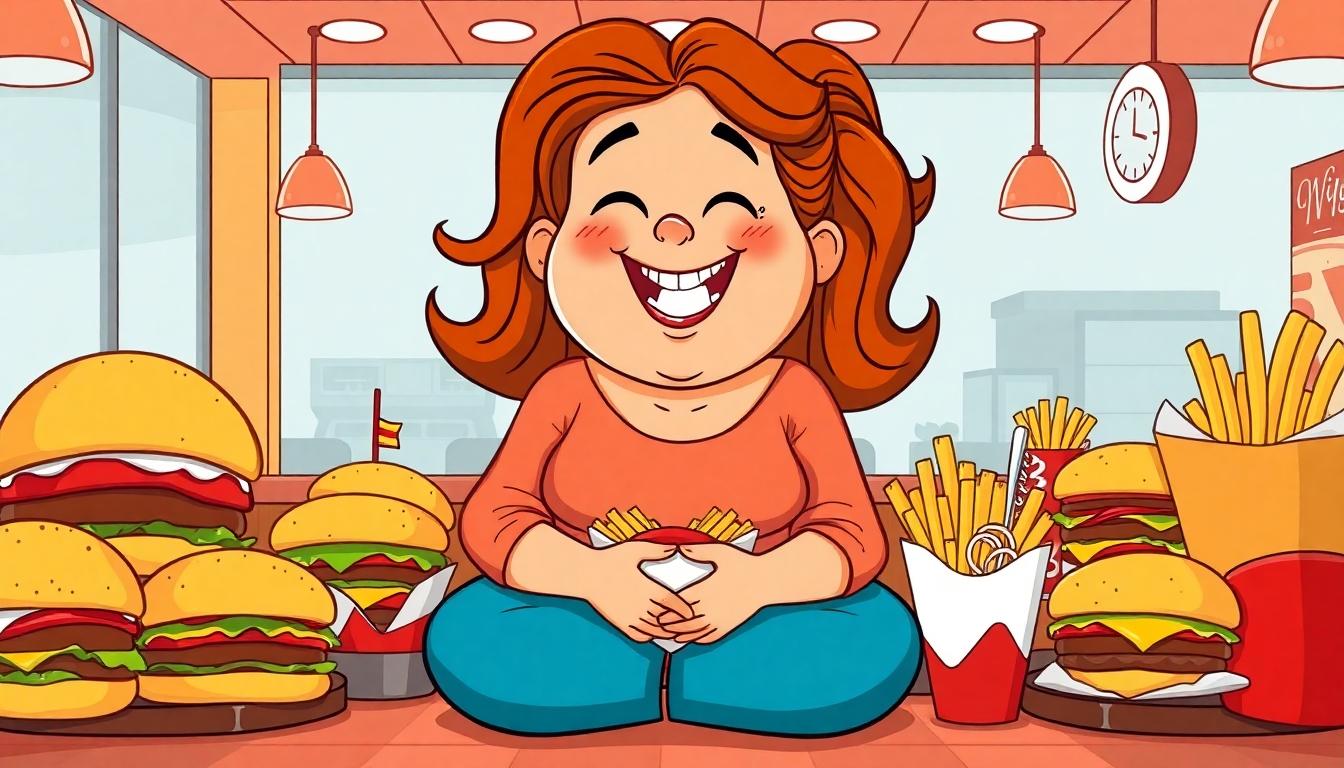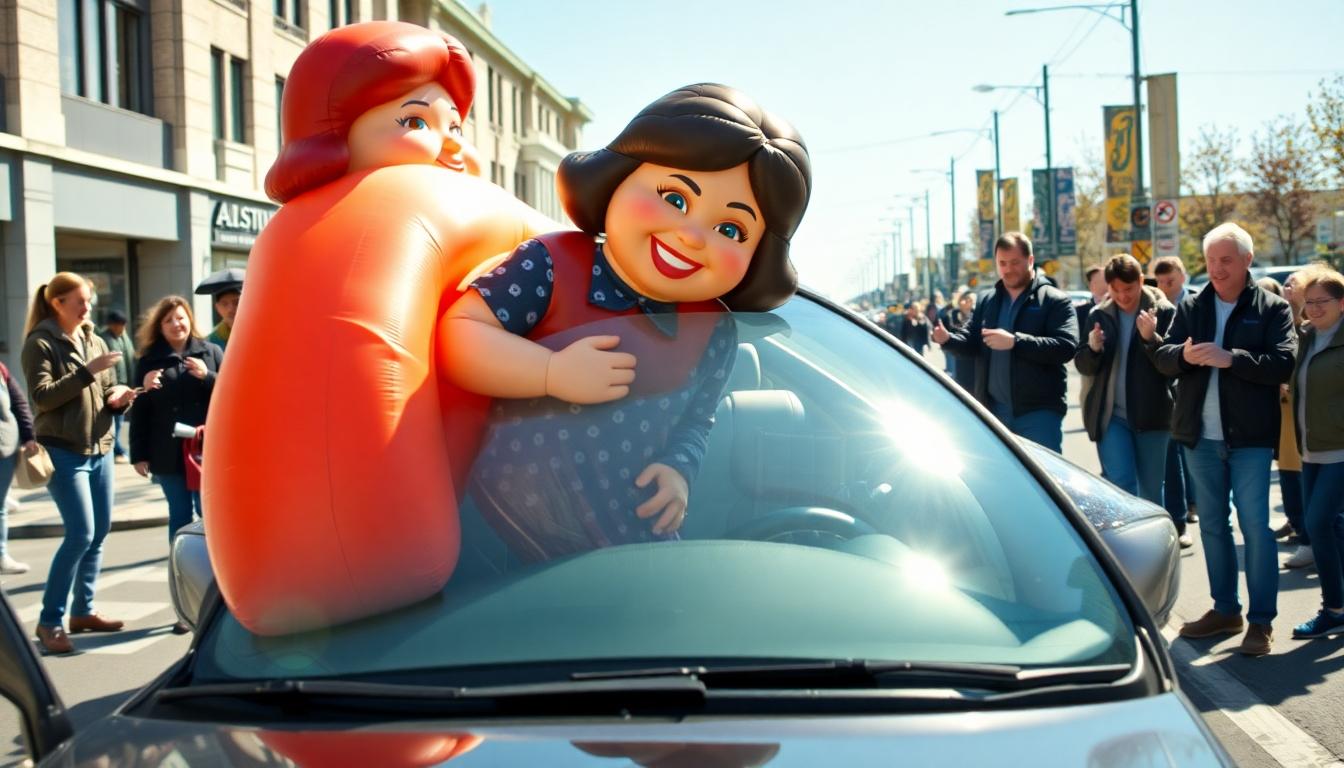Let’s face it—we all need a good laugh sometimes, and few things bring more nostalgic chuckles than the classic “yo mama so fat” jokes that dominated schoolyards and comedy circles for decades. These playful jabs have become a cultural phenomenon, transcending generations with their simple yet effective humor formula.
We’ve compiled the ultimate collection of these hilarious one-liners that have stood the test of time. Whether you’re looking to reminisce about childhood playground banter or seeking fresh material for friendly roasting sessions, our comprehensive list has everything you need. From the classics to modern variations, these jokes continue to evolve while maintaining their signature comedic punch.
The Origin and History of “Yo Mama” Jokes
“Yo mama” jokes have deep historical roots dating back centuries before they became playground staples. These maternal insults first appeared in ancient civilizations, with documented examples from Mesopotamian texts dating to approximately 3500 BCE. Anthropologists have discovered that maternal insult competitions existed in many cultures worldwide, serving as ritualized verbal combat that allowed for tension release without physical confrontation.
During the Middle Ages, “maternal flyting” became popular in Europe, where poets and bards would engage in verbal duels that often targeted each other’s mothers. Shakespeare himself included maternal insults in his works, most notably in “Titus Andronicus” where characters exchange heated remarks about their mothers’ virtue.
African American communities in the 1930s transformed these jokes into the modern format we recognize today through “playing the dozens” – structured insult contests that often centered on mothers. These verbal showdowns became important cultural rituals that demonstrated quick thinking and verbal dexterity, skills highly valued in communities where physical power might be restricted by societal limitations.
The term “yo mama” specifically emerged in urban American slang during the 1960s, coinciding with broader cultural shifts and the civil rights movement. Television shows like “In Living Color” and “Def Comedy Jam” during the 1990s popularized these jokes for mainstream audiences, bringing them from neighborhood streets to national consciousness.
Hip-hop culture embraced maternal insults as part of battle rap competitions, where cleverly crafted “yo mama” jokes could instantly establish dominance in a verbal confrontation. MTV capitalized on this trend with their show “Yo Momma” hosted by Wilmer Valderrama, which ran from 2006-2007 and featured contestants battling with maternal insults for prizes.
Social media platforms transformed these jokes into shareable memes beginning around 2010, allowing them to spread globally and transcend cultural boundaries. Even though criticism for potential harmful stereotypes, “yo mama” jokes continue to evolve in digital spaces, demonstrating remarkable resilience as a form of humor that connects generations of joke-tellers worldwide.
10 Classic “Yo Mama So Fat” Jokes That Never Get Old

These timeless jokes have been making people laugh for generations, using outrageous exaggeration to create humor that transcends time.
Planetary Proportions
Yo mama so fat, she’s been declared a planet by NASA. This classic joke plays on astronomical proportions to highlight absurd size. Yo mama so fat, she’s been mistaken for a small island nation, combining geography with hyperbole for maximum comic effect. Yo mama so fat, she’s recorded on satellite maps, suggesting her size is visible from space. NASA’s involvement in these jokes adds a scientific twist that makes them particularly effective. Yo mama so fat, she’s got her own network, implying her body is large enough to sustain various life forms. These jokes date back decades but remain popular because they tap into universal concepts of space and size that everyone understands.
Gravitational Pull
Yo mama so fat, she’s got her own gravitational pull. This joke has roots in scientific principles while delivering a humorous punch. Yo mama so fat, she’s got a black hole in her belly button, taking the cosmic theme to another level of absurdity. Yo mama so fat, she had to get baptized at SeaWorld, suggesting regular facilities couldn’t accommodate her size. Yo mama so fat, she made the Hoover Dam overflow by taking a bath, emphasizing her massive displacement. Yo mama so fat, it takes two zip codes to deliver a pizza to her house, playing on the idea that her size crosses municipal boundaries. Yo mama so fat, she’s got her own weather forecast, implying her body creates its own climate conditions. These gravitational jokes have remained popular since their emergence in modern culture through verbal sparring traditions like “The Dozens” in African-American communities.
Science and Physics-Themed “Yo Mama So Fat” Jokes

Science enthusiasts and physics nerds have their own unique spin on the classic “yo mama” format, incorporating complex scientific concepts to create intellectually humorous punchlines. These jokes cleverly blend scientific principles with outrageous exaggeration for maximum comedic effect.
Breaking the Laws of Physics
Physics-themed “yo mama” jokes often center around how a mother’s supposed size violates established scientific principles. “Yo mama’s so big that her toes are receding away from her head at super-luminal velocities” playfully suggests she’s so large that parts of her body move faster than light—an impossible feat according to Einstein’s theory of relativity. Another standout example declares, “Yo mama so fat when she did a belly flop, they found water on Mars,” humorously connecting an everyday action to an astronomical impossibility. These jokes work by creating absurd scenarios where fundamental physical laws are broken due to exaggerated mass or size.
Some jokes incorporate more advanced concepts, such as “Yo mama is so massive she has her own event horizon” or “Yo mama so fat, tightening her belt causes her to drop below her Schwarzschild Radius.” Both references cleverly use concepts from black hole physics to emphasize extraordinary mass. Scientists might appreciate the joke that “Yo mama so fat, it took a team of Astrophysicists years of carefully measuring the distortion of light arriving from galaxies on the far side of her gravity well to calculate her mass,” which plays on gravitational lensing principles in an exaggerated context.
Astronomical Comparisons
The vastness of space provides perfect material for “yo mama” jokes that emphasize incredible size. “Yo momma so fat her nickname is the ‘Big Bang’ because we only have theories as to what created her” cleverly connects the universe’s origin with the subject’s purported enormity. Space enthusiasts might enjoy “Yo momma so fat, scientists at Cal Tech called her Planet Nine,” referencing the hypothesized ninth planet in our solar system while implying extraordinary mass.
Celestial motion also features prominently in these astronomical jokes. “The moon rotates around the Earth, the Earth rotates around the Sun and the Sun rotates around your Mom” humorously places the subject at the center of our cosmic neighborhood, suggesting gravitational influence greater than our star. Another scientifically-themed joke states, “Yo mama so fat she has mass whether the Higgs Boson exists or not,” referencing particle physics to suggest her mass exists independently of the particle that theoretically gives matter its property of mass.
Some jokes in this category make creative use of scientific misunderstandings, like “Yo mama so stupid she swallowed a magnet because she wanted to be more attractive,” which plays on the dual meaning of “attractive” in both social and magnetic contexts. This blend of astronomy, physics, and wordplay creates sophisticated humor that appeals especially to those with scientific knowledge.
Food-Related “Yo Mama So Fat” Jokes

Food-related “yo mama so fat” jokes follow a distinct three-part structure that typically includes an introductory formula, a food-centered exaggeration, and an absurd consequence highlighting physical size. These jokes have been a staple in comedy circles for decades, using culinary imagery to create outlandish scenarios.
Fast Food Favorites
Fast food establishments provide rich material for these iconic jokes, playing on themes of overconsumption and excess. McDonald’s, Burger King, and other chain restaurants often feature prominently in these humorous exaggerations. “Yo mama so fat, her diet starts with a double cheeseburger” cleverly combines food excess with the common trope of failed weight-loss attempts. Another popular example includes “Yo mama so fat, McDonald’s uses her silhouette for the Golden Arches,” which transforms corporate branding into body-based humor.
These jokes gain their comedic power by inverting traditional parental authority, using fast food as a vehicle for absurdity. Drive-thru scenarios are especially popular in this category, with jokes suggesting extraordinary accommodations needed for the mother’s size. The universal recognition of fast food chains makes these jokes instantly relatable across different audiences.
Dessert Disasters
Dessert-themed jokes leverage sweet treats to create hyperbolic, food-based imagery that emphasizes size. “Yo mama so fat, she sat on a cupcake and created the Oreo” demonstrates how these jokes combine body humor with creative dessert mashups. Ice cream brands frequently appear in these jokes, as seen in “Yo mama so fat, Ben & Jerry named a flavor after her: Chubby Hubby².”
Baked goods provide another rich source of material, with cakes, cookies, and pastries serving as measuring tools for exaggerated proportions. Candy bars and chocolate-related humor round out this category, playing on the contrast between small treats and supposedly enormous appetites. The vivid imagery of dessert-based jokes creates particularly memorable punchlines that stick in audiences’ minds.
Even though their modern popularity, these food-related maternal insults connect to ancient traditions dating back to Babylonian times around 3500 BCE, showing the remarkable persistence of this form of humor across millennia.
Transportation and Movement “Yo Mama So Fat” Jokes

Transportation-themed jokes represent some of the most popular entries in the “yo mama so fat” joke catalog. These jokes playfully exaggerate mobility challenges through references to vehicles and movement, creating vivid and humorous mental images.
Car and Vehicle References
Vehicle-based “yo mama so fat” jokes typically focus on how transportation methods must be modified to accommodate an impossibly large size. “Yo mama is so fat that she needs a forklift to get into her car” exemplifies this classic formula, combining everyday transportation with industrial equipment for comic effect. Airlines often feature prominently in these jokes, with lines like “Yo mama is so fat that she has to buy two seats on a plane” highlighting supposed space requirements. Many vehicle jokes follow a pattern of exaggeration where normal transportation becomes inadequate, requiring extraordinary measures or modifications. The humor derives from the absurd visual of common vehicles struggling with an impossible task, creating an instant mental picture that triggers laughter.
Walking and Movement Gags
Movement-focused jokes extend the transportation theme to everyday mobility and navigation challenges. “Yo mama is so fat that she needs a walking frame to get around the house” takes a common mobility aid and applies it to an ordinary indoor setting for humorous effect. Technology often appears in these jokes, as in “Yo mama is so fat that she uses a Segway to get to the fridge,” combining a high-tech transportation device with a mundane household journey. These movement gags typically emphasize short distances that wouldn’t normally require assistance, making the exaggeration more pronounced. The structure relies on juxtaposing normal activities with extraordinary mobility answers, creating an impossible scenario that highlights the joke’s absurdity.
Transportation jokes represent one of the most enduring categories in the “yo mama” tradition, with their effectiveness coming from the universal understanding of movement challenges and the visual humor they create. The formula typically pairs ordinary locations or actions with extraordinary transportation needs, creating instant recognition and humor through extreme contrast.
“Yo Mama So Fat” Jokes About Everyday Activities

“Yo mama so fat” jokes often target common daily activities, exaggerating normal situations to create humor. These jokes transform mundane scenarios into absurd circumstances, highlighting the universal nature of everyday experiences.
Shopping Scenarios
Shopping trips become comically catastrophic in these popular jokes. The retail environment provides perfect fodder for humor that plays on size and impact:
- Discount Creation: “Yo mama is so fat when she sat on Walmart, she lowered the prices.” This joke cleverly combines the concept of weight with economic impact, suggesting her mass literally forced down store prices.
- Extra Airline Tickets: “Yo mama is so fat that she has to buy three airline tickets.” Travel-related jokes like this one emphasize the financial consequences of the exaggerated size, making light of airline seating policies.
- Mall Navigation: “Yo mama is so fat that she needs a GPS just to find her back pocket.” Shopping malls become labyrinths in these jokes, where even personal items require navigation assistance.
- Clothing Store Chaos: “Yo mama is so fat that when she went shopping for a new dress, the store had to order extra fabric from three different countries.” These jokes highlight the supposed impossibility of finding appropriately sized clothing.
Household Happenings
Home life provides endless material for “yo mama so fat” jokes, with domestic settings becoming stages for comedic hyperbole:
- Furniture Failures: “Yo mama is so fat that when she sits on the couch, the floor underneath files for workers’ compensation.” Household items suffer under the imaginary weight in these jokes, creating vivid mental images.
- Doorway Dilemmas: “Yo mama is so fat that they had to remove the doors and install garage doors instead.” Home architecture becomes hilariously insufficient in these exaggerations.
- Kitchen Calamities: “Yo mama is so fat that when she opens the refrigerator, people yell ‘Hey, close the garage!'” Food-related household activities often feature prominently, blending eating stereotypes with household settings.
- Bedroom Problems: “Yo mama is so fat that her bed has to file taxes as a small business.” Sleep and bedtime routines transform into absurd scenarios that stretch the limits of imagination.
- Beach Visits: “Yo mama is so fat that whenever she goes to the beach the tide comes in!” Even leisure activities become opportunities for humorous exaggeration about physical impact on natural environments.
These jokes apply the classic “yo mama” formula to relatable daily activities, creating humor through the stark contrast between normal expectations and the outlandish scenarios described. The ubiquity of shopping and household activities makes these jokes particularly accessible across different cultures and contexts.
The Psychology Behind “Yo Mama” Joke Humor

Psychosexual Development and Maturity
“Yo Mama” jokes often function as indicators of psychological development stages in individuals. Research connects these jokes to Freudian psychosexual development theory, suggesting they reflect themes related to sexual maturity. The prevalence of these jokes among adolescents isn’t coincidental – they emerge during critical developmental periods when young people are handling their own identity formation. Many psychologists view the telling of these jokes as a natural expression of reaching certain psychological maturity milestones, allowing teenagers to process complex emotions through humor.
Psychological Defense Mechanisms
The underlying mechanism of projection plays a important role in the psychology of “Yo Mama” jokes. When people tell these jokes, they’re often projecting their own insecurities onto others through humor. This defense mechanism allows individuals to cope with personal anxieties by redirecting them toward a third party – in this case, someone else’s mother. Psychologically speaking, the exaggerated nature of “Yo Mama so fat” jokes creates enough distance from reality that the teller and audience can share in the absurdity without confronting genuine insecurities directly. The humor serves as a buffer that transforms potentially uncomfortable feelings into socially acceptable interactions.
Social Interaction and Peer Dynamics
“Yo Mama” jokes serve important social functions, particularly among young males establishing group dynamics. These jokes create opportunities for bonding through shared humor and establish hierarchies within peer groups based on verbal wit. Research indicates that these playful insults can actually strengthen relationships in certain social contexts by creating a framework for non-threatening competition. The ritualistic exchange of these jokes often works as a form of social currency, where clever comebacks earn respect and admiration from peers. Paradoxically, being targeted by these jokes can sometimes be interpreted as a form of flattery, signaling inclusion within the social group.
Cultural and Humor Analysis
The exaggerated absurdity in “Yo Mama so fat” jokes represents a key component of their cultural significance and humor mechanism. Analysis shows these jokes work by creating cognitively impossible scenarios that violate our expectations about physical reality. The mother figure becomes portrayed as foolish or deviant through hyperbole, triggering laughter through the sheer impossibility of the claims. Cultural studies reveal how these jokes have evolved across different communities while maintaining their fundamental structure of exaggeration and absurdity. The universal appeal stems from their accessible format combined with cultural adaptability, allowing the jokes to remain relevant across generations even though changing social standards about body image and maternal respect.
When and How to Use “Yo Mama So Fat” Jokes Appropriately

Understanding the Cultural Context
“Yo mama so fat” jokes emerged from a rich cultural tradition known as “The Dozens,” particularly within African-American communities. This verbal game of trading increasingly outrageous insults has deep historical roots, serving as both entertainment and a form of social bonding. We’ve found that these jokes work best when all participants understand this cultural context and recognize them as a form of playful banter rather than genuine insults.
Choosing the Right Setting
The setting plays a crucial role in determining whether these jokes will land well. Casual gatherings among close friends who already engage in this type of humor create an ideal environment. Family reunions, professional workplaces, or formal settings generally don’t provide appropriate contexts for this style of joke. Always assess the social atmosphere before launching into a “yo mama” routine, as what works at a backyard barbecue might fall flat or offend at a dinner party.
Reading Your Audience
Audience awareness remains paramount when considering whether to share these jokes. Not everyone appreciates this humor style, regardless of how clever or harmless the jokes might seem. Pay attention to how receptive people might be based on their own humor preferences and personal boundaries. Films like “White Men Can’t Jump” and “The Nutty Professor” successfully incorporated these jokes because they carefully considered their audience’s expectations.
Establishing Mutual Consent
Consent forms the foundation of appropriate joke-telling. Both parties should implicitly or explicitly agree to engage in this type of humor. Starting with milder jokes allows you to gauge reactions before potentially escalating to more outrageous examples. Remember that genuine laughter, not uncomfortable chuckles, indicates true enjoyment of the exchange.
Maintaining Lighthearted Intentions
The spirit behind these jokes matters significantly. When delivered with genuine lightheartedness rather than malice, “yo mama so fat” jokes can strengthen bonds through shared humor. Their absurdist nature—often creating physically impossible scenarios—highlights their status as pure fiction rather than actual commentary on someone’s mother. Focus on the creative wordplay and outlandish imagery rather than any personal attacks.
Knowing When to Stop
Even in appropriate settings, recognizing when to conclude a joke session demonstrates social intelligence. If someone seems uncomfortable, changes the subject, or responds with genuine offense rather than their own comeback, it’s time to move on. The purpose of these jokes should always center on mutual entertainment, never on causing discomfort or hurt feelings.
Modern Twists on Traditional “Yo Mama So Fat” Jokes

Historical Background
“Yo Mama” jokes have a surprisingly ancient lineage, with maternal insults appearing in texts dating back thousands of years. Evidence shows that the practice of insulting someone’s mother as a form of verbal sparring can be found in ancient writings from Plutarch and Talmudic texts. These jokes didn’t reach their modern form and widespread popularity until the 1990s, largely due to the famous “Dirty Dozens” sketch that appeared on the hit TV show In Living Color. This mainstream exposure helped cement these jokes in popular culture, creating a foundation for the creative variations we see today.
Modern Use and Twists
Comedic Media has embraced “Yo Mama” jokes across multiple platforms, incorporating them into movies, television, and stand-up routines. Films like White Men Can’t Jump and The Nutty Professor feature memorable sequences where characters exchange these jokes, showcasing their enduring appeal in scripted entertainment. Television shows such as Regular Show on Cartoon Network have cleverly integrated these jokes into their narratives, often putting unique spins on the traditional format to keep the humor fresh and relevant for younger audiences. Political figures have even deployed “Yo Mama” jokes on occasion, demonstrating just how deeply these jokes have penetrated our cultural consciousness.
The Internet and Pop Culture revolution has transformed how “Yo Mama” jokes evolve and spread. Social media platforms allow for instant sharing of new variations, with creators constantly updating references to include current events, celebrities, and technology. Online communities dedicated to crafting and sharing these jokes have emerged, functioning as laboratories for modern twists on the classic format. Digital culture has given these traditional jokes new life, allowing them to adapt to contemporary sensibilities while maintaining their essential structure.
Examples of Modern Twists
“Yo mama’s so fat, she had to get baptized at SeaWorld” combines religious imagery with modern entertainment venues for an unexpected punchline. This joke works by creating a visual absurdity that updates the traditional size exaggeration with a exact, recognizable location.
“Yo mama’s so fat, that when I swerved to miss her on the street, I ran out of gas” cleverly plays with physics and automotive knowledge, creating a modern scenario that exaggerates size through practical consequences rather than just visual imagery.
“Yo momma so old, scientists just discovered her as a missing evolutionary link!” represents how modern “Yo Mama” jokes have expanded beyond fat jokes to include other attributes, incorporating scientific concepts to create humor that appeals to more educated audiences.
These modern variations demonstrate how “Yo Mama” jokes continue to evolve while maintaining their fundamental appeal, adapting to new cultural references and comedic styles to remain relevant across generations.
The Cultural Impact of “Yo Mama” Jokes in Comedy
“Yo mama so fat” jokes have secured their place in comedy’s hallowed halls even though shifting social norms. They represent more than just punchlines – they’re cultural artifacts that have evolved from ancient verbal duels to modern meme culture.
These jokes connect generations through shared laughter while adapting to contemporary sensibilities. Whether through scientific concepts physical impossibilities or food-related hyperbole they showcase our enduring love for absurdist humor.
When delivered with mutual understanding and good intentions these jokes continue to serve their age-old purpose: bringing people together through laughter. Their remarkable adaptability ensures they’ll likely remain part of our comedic industry for generations to come.
Frequently Asked Questions
Where did “yo mama” jokes originate?
“Yo mama” jokes have ancient origins dating back to Mesopotamian texts around 3500 BCE. They evolved through various cultures as ritualized verbal combat, appeared as “maternal flyting” in medieval Europe, and transformed in African American communities during the 1930s as “playing the dozens.” The specific phrase “yo mama” emerged in urban American slang during the 1960s before gaining mainstream popularity in the 1990s through TV and hip-hop culture.
Why are “yo mama so fat” jokes so popular?
These jokes remain popular due to their simple formula, universal relatability, and extreme exaggeration that creates absurd scenarios. They use hyperbole that’s so outlandish it becomes humorous rather than offensive. Their cultural staying power comes from their adaptability across generations and ability to evolve with changing times, from playground banter to sophisticated science-themed variations that appeal to different audiences.
What makes a good “yo mama so fat” joke?
A good “yo mama so fat” joke relies on creative exaggeration, unexpected punchlines, and relatable scenarios. The best examples follow a three-part structure: the opening formula (“Yo mama so fat…”), an exaggerated claim, and an absurd consequence that creates humor through impossibility. Effective jokes often incorporate familiar references from science, food, transportation, or everyday activities that audiences can visualize.
Are “yo mama” jokes appropriate in all settings?
No. These jokes are context-dependent and require mutual understanding among participants. They’re most appropriate among friends with established humor boundaries and in settings where everyone consents to this style of humor. They should be avoided in professional environments, around people you don’t know well, or with those who might find them personally hurtful due to body image concerns or cultural misunderstandings.
How have “yo mama” jokes evolved over time?
These jokes have evolved from simple playground taunts to sophisticated humor incorporating science, technology, and contemporary culture. Modern variations reference everything from quantum physics to social media platforms. While maintaining their basic structure, they’ve adapted to changing sensibilities about body image and expanded into different thematic categories. Their evolution demonstrates their remarkable cultural resilience across generations.
What psychological function do “yo mama” jokes serve?
Psychologically, these jokes function as a form of social bonding, particularly among adolescents developing their identities. They can serve as a defense mechanism through projection, allowing individuals to cope with insecurities through humor. In group settings, they establish social hierarchies and create shared experiences. The cognitive dissonance of their impossible scenarios triggers laughter as the brain processes these absurd claims.
How are “yo mama” jokes connected to science?
Science-themed “yo mama so fat” jokes cleverly incorporate complex scientific principles for intellectual humor. They play with concepts like black hole physics, relativity, gravitational fields, and astronomical measurements. Examples include jokes about a mother bending light or having her own orbit. These variations appeal to science enthusiasts by blending accurate scientific concepts with absurd exaggerations that humorously “break” established physical laws.
What themes are most common in “yo mama so fat” jokes?
The most common themes include food and consumption (particularly fast food), transportation challenges, gravitational effects, astronomical comparisons, everyday activities made absurd, and physical space limitations. These themes work well because they’re universally understood, easily visualized, and allow for creative exaggeration that highlights the central premise of extraordinary size in comically impossible ways.
How should someone respond to a “yo mama” joke?
The best response depends on the context and your relationship with the joke-teller. Options include laughing if you find it funny, responding with your own joke to continue the exchange, politely indicating you don’t enjoy that style of humor, or simply changing the subject. Remember that these jokes are meant to be lighthearted banter, not personal attacks, and responding with anger usually escalates rather than resolves the situation.
Can “yo mama” jokes be culturally insensitive?
Yes. While these jokes have roots in various cultural traditions, including African American verbal play known as “the dozens,” using them without understanding their cultural context can be insensitive. Additionally, these jokes can perpetuate harmful stereotypes about body size, particularly affecting women. Being mindful of cultural differences, power dynamics, and potential sensitivities helps ensure the humor remains good-natured rather than hurtful.







